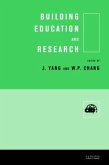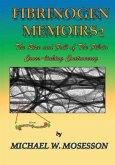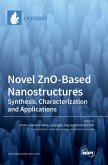Dr. Ernest Kafka (1932-2021), a graduate of Harvard College and Washington University Medical School, was a renowned psychoanalyst. His life both in and outside psychiatry was committed to the close observation of people and the consideration of things both said and unsaid. Dr. Kafka maintained a private practice focusing on adults and adolescents in New York City beginning in 1967. He was also highly respected as a teacher and academic, serving as a Supervisor, Training Analyst and past-President of the New York Psychoanalytic Institute beginning in 1981 and as an Associate Clinical Professor of Psychiatry at Cornell University Medical College from 1987 to 2002. With a strong interest in finance, Dr. Kafka served as a Board Member for 32 Dreyfus portfolios and a Trustee of the Dreyfus BASIC U.S. Government Money Market Fund. He was also a talented musician, a professional art photographer and an art collector. Ernest Kafka had a unique talent, well-illustrated in this collection of his papers. He could uphold the classic tenets of psychoanalysis while at the same time looking at them from new and previously undetected angles. Approaching subjects of much interest but rarely studied, his writings helped broaden the reader's perspective by tackling complex subjects in ways that enhance one's curiosity. This creativity can be seen in almost everything in this collection, which therefore makes it not only interesting reading, but also educative, even for those of us who are well-versed in psychoanalytic theory and practice. Kafka's own lifelong search for new discoveries-whether ideas, places, music or even food-had always been accompanied by keeping solidly grounded in well-established principles while never-the-less avoiding the easy roads. -Edward Nersessian, Psychoanalyst, professor of psychiatry at Medical College of the Cornell University, co-founder of the Philoctetes Center, and the founder and current director of the Helix Center for Interdisciplinary Studies. Ernest Kafka was born in Vienna in 1932. His family were members of the Austrian Jewish community. They emigrated to New York through Paris in 1938. A gifted student, he went to public schools, Harvard College, Washington University Medical School and the New York Psychoanalytic institute, where he remained as a Training and Supervising Analyst and senior faculty member until his death in 2021. He had a remarkably wide range of interests and knowledge-science, history, humanities, literature, music, fine arts, and of course psychoanalysis. Ernie enjoyed life people, ideas; he took pleasure fine food, wine, travel and particularly in understanding of the lives of others-his friends, colleagues, students and patients. Ernie was very much a psychoanalyst, but also more than that, aware of the importance of issues at the boundaries of the traditional psychoanalytic focus: the way the brain works, culture and society. He dedicated this collection of papers to Heinz Hartmann, and like Hartmann recognized that the analyst must not only be interested in the analysand's subjective world but also in the external reality within which that world exists. Tragically, we will no longer have the joy of personal dialogue with Ernie. This volume is the best possible substitute, and an important contribution to the psychoanalytic library. -Robert Michels, M.D. Walsh McDermott University Professor of Medicine and Psychiatry Cornell University, Former Joint Editor-in-Chief. The International Journal of Psychoanalysis Chair, Board of Directors The Psychoanalytic Quarterly.
Hinweis: Dieser Artikel kann nur an eine deutsche Lieferadresse ausgeliefert werden.
Hinweis: Dieser Artikel kann nur an eine deutsche Lieferadresse ausgeliefert werden.








